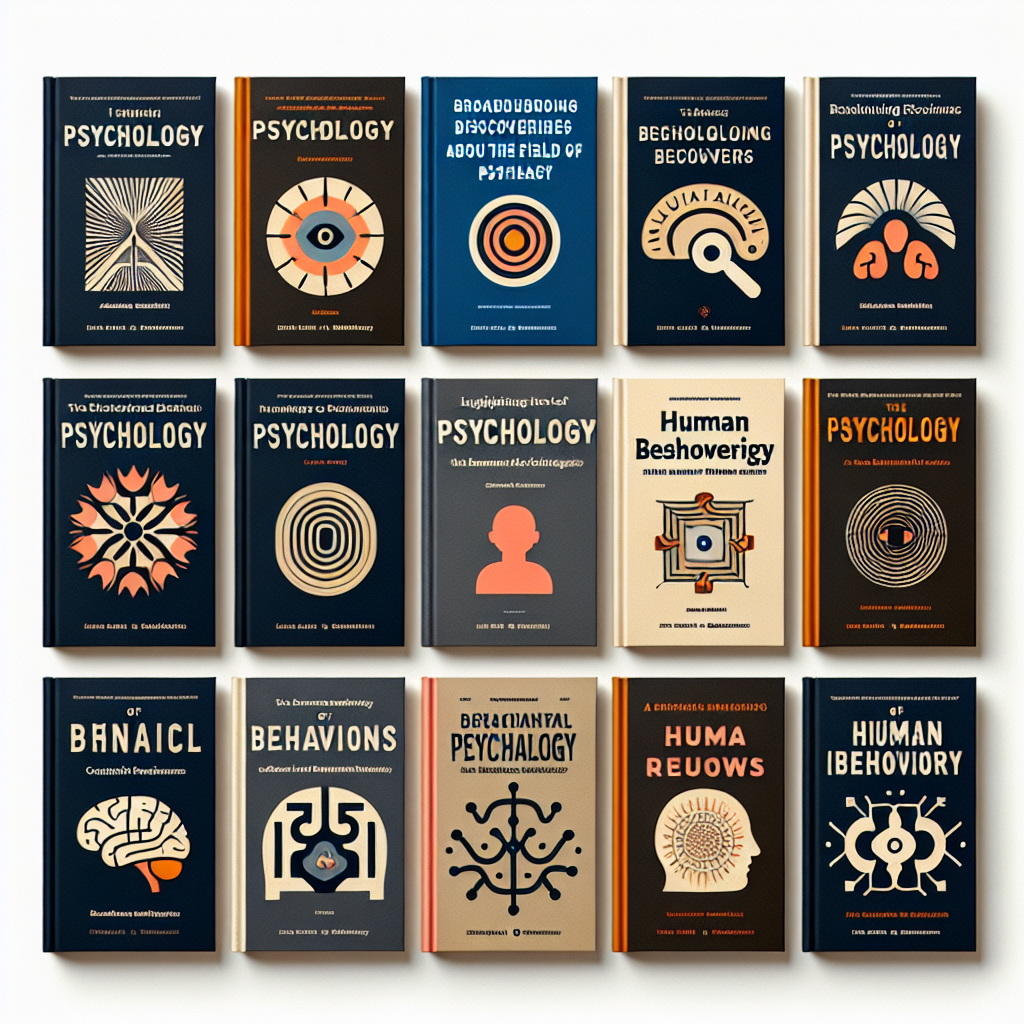As an Amazon Associate I earn from qualifying purchases.
12 Groundbreaking Titles on Psychology

The field of psychology has been shaped and reshaped by countless contributions from philosophers, scientists, and authors dedicated to exploring the human mind. From the foundational texts of Freud to the transformative works of modern psychologists, the literature on this subject is both vast and deeply fascinating. This article delves into twelve groundbreaking titles that have significantly influenced our understanding of psychology. These works span across various schools of thought, from psychoanalysis to behaviorism, and cognitive psychology to humanistic psychology, offering readers a comprehensive overview of the field's evolution and its current trends.
1. “The Interpretation of Dreams” by Sigmund Freud (1900)
Arguably one of the most influential works in the field of psychology, Freud's exploration of dream analysis laid the groundwork for psychoanalytic theory. Freud posited that dreams are a manifestation of our deepest desires and anxieties, often repressed from conscious thought. This book not only introduced the concept of the unconscious mind but also changed the way we understand our inner lives.
2. “Behaviorism” by John B. Watson (1924)
John B. Watson's “Behaviorism” challenged the introspective psychology of the early 20th century, arguing instead that psychology should focus on observable behavior. This work is foundational to the behaviorist school of thought, which emphasizes the role of environmental factors in shaping behavior and dismisses the significance of innate traits or the unconscious.
3. “Man's Search for Meaning” by Viktor Frankl (1946)
Viktor Frankl's harrowing experiences as a Holocaust survivor form the basis of this profound book. Frankl introduces logotherapy, a form of existential analysis that focuses on finding purpose through suffering. His insights into the human capacity for resilience and meaning-making have inspired millions and contributed significantly to existential and humanistic psychology.
4. “Motivation and Personality” by Abraham Maslow (1954)
Abraham Maslow's theory of the hierarchy of needs is a cornerstone of humanistic psychology, emphasizing the positive potential of human beings. In “Motivation and Personality,” Maslow argues that individuals are motivated by a series of hierarchical needs, culminating in self-actualization. This work has influenced various fields, including education, business, and therapy.
5. “The Presentation of Self in Everyday Life” by Erving Goffman (1959)
Erving Goffman's exploration of social interaction introduced the concept of dramaturgical analysis, viewing life as a theatrical performance where individuals manage their impressions in front of others. This seminal work has had a lasting impact on social psychology and sociology, offering profound insights into the nature of identity and social behavior.
6. “Cognitive Psychology” by Ulric Neisser (1967)
Ulric Neisser's “Cognitive Psychology” marked a paradigm shift in psychology from behaviorist to cognitive perspectives. Neisser challenged the behaviorist notion that mental processes could not be studied scientifically, offering a comprehensive overview of cognition, including perception, memory, language, and problem-solving. This book is considered the birth of cognitive psychology as a distinct field.
7. “Flow: The Psychology of Optimal Experience” by Mihaly Csikszentmihalyi (1990)
Mihaly Csikszentmihalyi's concept of “flow” — a state of complete immersion and enjoyment in an activity — has become integral to understanding motivation and happiness. “Flow” explores the conditions under which people experience this state and its effects on creativity, productivity, and well-being. Csikszentmihalyi's work has applications in psychology, education, and the arts.
8. “Emotional Intelligence” by Daniel Goleman (1995)
Daniel Goleman's “Emotional Intelligence” brought the concept of EQ to the forefront of psychological discourse, arguing that emotional intelligence is as important as IQ for success in life. Goleman's work has influenced education, business, and personal development, highlighting the importance of self-awareness, empathy, and social skills.
9. “The Man Who Mistook His Wife for a Hat” by Oliver Sacks (1985)
Through a series of fascinating case studies, Oliver Sacks explores the bizarre world of neurological disorders, offering insights into the workings of the brain and the resilience of the human spirit. Sacks' compassionate storytelling bridges the gap between clinical psychology and the general public, making complex neurological concepts accessible and profoundly human.
10. “Thinking, Fast and Slow” by Daniel Kahneman (2011)
Nobel laureate Daniel Kahneman presents a groundbreaking exploration of the two systems that drive the way we think: System 1, fast and intuitive; and System 2, slow and deliberate. Kahneman's insights into decision-making and behavioral economics have had a profound impact on various disciplines, including psychology, economics, and marketing.
11. “Quiet: The Power of Introverts in a World That Can't Stop Talking” by Susan Cain (2012)
Susan Cain's “Quiet” challenges the extrovert ideal prevalent in Western culture, arguing for the value and strengths of introverted individuals. Cain's research and arguments have sparked a global conversation about the need for more inclusive environments that recognize and nurture different personality types.
12. “Grit: The Power of Passion and Perseverance” by Angela Duckworth (2016)
Angela Duckworth's “Grit” explores the role of passion and perseverance in achieving success, challenging the traditional emphasis on talent and IQ. Duckworth's research demonstrates that grit is a significant predictor of success, offering valuable insights for educators, business leaders, and individuals striving to achieve their goals.
Conclusion
The twelve titles highlighted in this article represent just a fraction of the influential works that have shaped the field of psychology. Each book offers unique insights into the complexities of the human mind and behavior, contributing to our understanding of what it means to be human. From the exploration of dreams to the study of optimal experiences, these groundbreaking titles have not only advanced psychological science but also offered practical applications for improving personal and societal well-being. As psychology continues to evolve, these works remain essential reading for anyone interested in the profound mysteries of the mind.
Amazon and the Amazon logo are trademarks of Amazon.com, Inc, or its affiliates.






















































